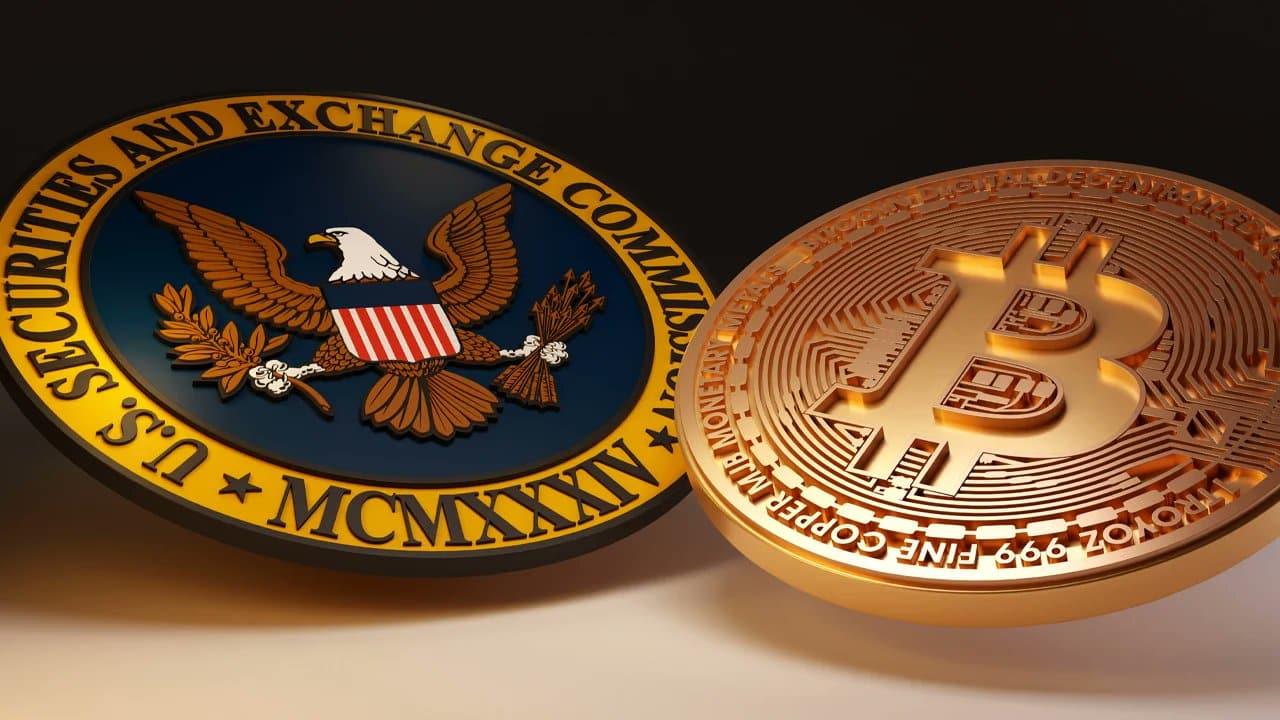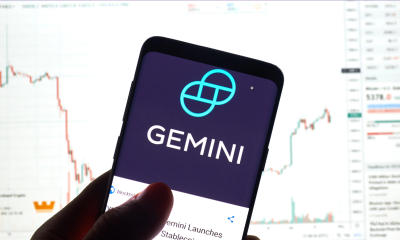Regulation
US SEC Misusing SAB 121 To Attack Crypto Custody Providers, Says Congressman

The U.S. Securities and Exchange Commission (SEC) has been leveraging the controversial SAB 121 accounting rule thereby pushing banks to disclose their crypto custodial assets on balance sheets. US Congressman Ritchie Torres said that the US SEC has been violating the accounting principles by upholding the SAB 121 rule.
Is the US SEC Misuing SAB 121?
Introduced by the Securities and Exchange Commission back in March 2022, the SAB 121 Bill stands for the Staff Accounting Bulletin 121 Bill. It has been in the act for nearly two years with the crypto industry calling it controversial. SAB121 requires crypto companies to provide a record of customers’ crypto holdings on their balance sheet as liabilities.
The US SEC has been asking all banks to disclose their crypto custody on balance sheets. This makes them further vulnerable to greater regulatory scrutiny. U.S. Representative Ritchie Torres has voiced its strong opposition to the SEC’s SAB 121 policy. He added that it strongly contradicts the generally accepted accounting principles (GAAP).
Additionally, Torres also accused the US SEC of stifling innovation by discouraging companies from experimenting with blockchain technology. “There is something profoundly un-American about banning innovation,” Torres remarked.
The SEC has a policy, known as SAB 121, that requires banks to put custodial assets on their own balance sheets—in violation of generally accepted accounting principles.
The SEC is effectively ordering companies not to experiment with blockchain technology. There is… pic.twitter.com/VbI8O442mu
— Rep. Ritchie Torres (@RepRitchie) September 20, 2024
Several markets have called out the US regulators for its high-handed approach to crypto regulations, by specifically targeting banks that have good business relations with crypto firms. One such recent casualty has been the Silvergate Bank bankruptcy where the Fed, FDIC, and others choked the bank as part of Operation Choke Point 2.0.
The Federal Reserve’s directive to significantly cut crypto-related deposits to less than 15% of its business ultimately contributed to its collapse.
Banking Players Opting for Crypto Custody
In recent weeks, the US SEC and the Federal Reserve have been issuing cease-and-desist orders to several banks offering crypto custodial services. Recently, the Fed targeted the United Texas Bank giving them a 90-day period to meet the AML standards. Analysts have started questioning why is the regulator targeting federally regulated banks and moving crypto custodial services into the hands of a few.
However, this hasn’t stopped big players from entering the market. On Friday, banking giant BNY Mellon got approval to offer crypto custodial services, while overcoming the SAB 121 hurdles. The bank has reportedly got an exemption from the rules. Well, this could open the Pandora’s box and get more players involved over the period of time.
Disclaimer: The presented content may include the personal opinion of the author and is subject to market condition. Do your market research before investing in cryptocurrencies. The author or the publication does not hold any responsibility for your personal financial loss.
Regulation
Japan Set To Classify Cryptocurrencies As Financial Products, Here’s All

Cryptocurrency investors in Japan are bracing for impact following a plan to reclassify digital assets as financial products. While the plan has elicited excitement from cryptocurrency enthusiasts in the Far East, the ambitious plan will have to scale several legislative hurdles.
Japan Targets Reclassification Of Cryptocurrencies As Financial Products
According to a report by Nikkei, Japan’s Financial Services Agency (FSA) is inching toward classifying cryptocurrencies as financial products. Per the report, the FSA intends to achieve the reclassification via an amendment to the Financial Instruments and Exchange Act.
Currently, digital assets in Japan are considered crypto assets conferred with property rights and seen as payment means. Under the FSA’s plans, cryptocurrencies in Japan will be treated as financial products in the same manner as traditional financial products.
The FSA says it will adopt a slow and steady approach toward the reclassification, carrying out “a private expert study group” to test the waters. If everything goes according to plan, the FSA will submit the amended bill to Parliament in early 2026.
The classification of cryptocurrencies as financial products will have far-reaching consequences for the local ecosystem. Experts say treating cryptocurrencies as financial products will bring Japan closer to a crypto ETF launch amid a changing regulatory landscape.
Furthermore, the move may lower current cryptocurrency taxation for local investors since existing capital market rules will apply to the asset class.
A Fresh Bill For Crypto Insider Trading Is Underway
Apart from the reclassification, the FSA disclosed plans for new legislation against insider trading. The move flows treating cryptocurrencies as financial products and will strengthen existing investor protection rules.
“It is a direction to establish a new insider trading regulation that prohibits trading based on unpublished internal information,” said the FSA. “We will develop laws to prevent unfair transactions.”
However, Japan’s cryptocurrency scene is heating up to a boil, driven by local and international players. Last week, stablecoin issuer Circle secured approval from the FSA for USDC with top exchanges set to list the stablecoin.
Japan’s Metaplanet has tapped Eric Trump to join its Strategic Board of Advisors as it continues to load up Bitcoin.
Disclaimer: The presented content may include the personal opinion of the author and is subject to market condition. Do your market research before investing in cryptocurrencies. The author or the publication does not hold any responsibility for your personal financial loss.
Regulation
Kentucky Governor Signs Off On ‘Bitcoin Rights’ Bill, Strengthening Crypto Protections


In what is being dubbed a major development in the crypto regulation space, the Governor of the US state of Kentucky, Andy Beshear, has signed the ‘Bitcoin Rights’ bill into law. The law promises to safeguard protections for Bitcoin (BTC) users.
Bitcoin Rights Bill Comes Into Effect
Crypto regulations continue to evolve under pro-crypto US President Donald Trump’s administration. In the latest development, Kentucky has become the newest state to enshrine protections for digital asset users.
In an X post published on March 24, crypto advocacy group Satoshi Action Fund announced that Governor Beshear had signed the much-anticipated Bitcoin Rights bill into law. The post stated:
The right to self-custody, run a node, and use of digital assets is now protected for millions of Americans without fear of discrimination.
The bill was first introduced to the Kentucky House by Rep. Adam Bowling on February 19. According to the bill’s description, it seeks to safeguard users’ rights to use digital assets and self-custody wallets. Additionally, it aims to prohibit local zoning changes that discriminate against crypto mining operations.
The legislation outlines guidelines for running a digital asset node and excludes digital asset mining from money transmitter license requirements. It also clarifies that crypto mining or staking is not considered an offer or sale of securities.
On February 28, the bill passed Kentucky’s House of Representatives with a unanimous vote of all 91 representatives in favor. It later passed the Kentucky Senate on March 13, receiving backing from all 37 senators.
Kentucky’s proactive stance toward cryptocurrencies isn’t new. Earlier this year, the state became the 16th US state to introduce legislation seeking to create a Bitcoin strategic reserve.
Meanwhile, neighboring state Arizona is also joining the crypto movement. A recent X post by Bitcoin Laws revealed that Arizona’s House Rules Committee has passed two Bitcoin reserve bills — SB1373 and SB1025. These bills will now head to a full floor vote.
Renewed Optimism Under Trump Administration
Following Trump’s victory in the November presidential election, cryptocurrency regulations in the US are evolving rapidly, with many states introducing legislation aimed at strengthening their digital asset ecosystems and attracting crypto businesses.
Positive changes in crypto regulations are encouraging industry businesses to expand. For instance, leading crypto trading platform Coinbase recently announced plans to hire 1,000 employees in the US.
The Trump administration has also witnessed several lawsuits being dropped against major crypto entities, including Kraken, Coinbase, Gemini, and others. At press time, Bitcoin trades at $87,399, down 0.2% in the past 24 hours.

Featured Image from Unsplash.com, chart from TradingView.com

Editorial Process for bitcoinist is centered on delivering thoroughly researched, accurate, and unbiased content. We uphold strict sourcing standards, and each page undergoes diligent review by our team of top technology experts and seasoned editors. This process ensures the integrity, relevance, and value of our content for our readers.
Regulation
US SEC Drops Charges Against Hawk Tuah Girl Hailey Welch

Hawk Tuah girl Hailey Welch, known for her association with the controversial $HAWK token, has been cleared of any wrongdoing after a lengthy investigation by the U.S. Securities and Exchange Commission (SEC). The SEC has decided not to press charges against Welch in connection with the rapid rise and subsequent collapse of the meme-based cryptocurrency.
US SEC Investigation Into Hawk Tuah Girl Concludes Without Charges
The SEC had launched an investigation into the $HAWK token after its dramatic price drop. The token, which was linked to Welch’s viral persona, initially saw a market cap surge to $490 million before crashing by over 90%. Investors who were impacted by the crash filed a lawsuit against those behind the project, alleging that the coin had been promoted and sold without proper registration.
Hawk Tuah girl Hailey Welch, who cooperated fully with the investigation, expressed relief after the SEC’s decision. “For the past few months, I’ve been cooperating with all the authorities and attorneys, and finally, that work is complete,” Welch told TMZ.
Her attorney, James Sallah, confirmed that the SEC had closed the case without any findings against her, adding that there would be no monetary sanctions or restrictions on Welch’s future involvement in cryptocurrency or securities.
This Is A Developing News, Please Check Back For More
Disclaimer: The presented content may include the personal opinion of the author and is subject to market condition. Do your market research before investing in cryptocurrencies. The author or the publication does not hold any responsibility for your personal financial loss.
-

 Ethereum24 hours ago
Ethereum24 hours agoWhales Accumulate 470,000 Ethereum In One Week – Bullish Momentum Ahead?
-

 Regulation21 hours ago
Regulation21 hours agoJapan Set To Classify Cryptocurrencies As Financial Products, Here’s All
-

 Market23 hours ago
Market23 hours ago3 Token Unlocks for April: Parcl, deBridge, Scroll
-

 Market20 hours ago
Market20 hours agoTop 3 Made in USA Coins to Watch This Week
-

 Market19 hours ago
Market19 hours agoSolana (SOL) Price Risks Dip Below $110 as Bears Gain Control






















✓ Share: